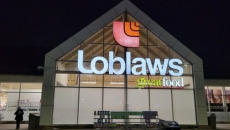A lawyer with the British Columbia Civil Liberties Association says it's wise to remember that even though charges over offensive social media activity are rare, online posts exist in real life and involve real people.
Aislin Jackson, the association's policy staff counsel, says police are developing the expertise required to identify people posting online, and in rare cases that leads to charges for their actions.
"It's not the wild west online anymore, and conduct that would be criminal anywhere is going to be investigated online as well," Jackson said.
"But it is not an offence to be racially offensive, in the criminal sense. It's conduct that we may want to socially discourage — but when it comes to the power of the state to lock you in a cage, you should be OK with just being racially offensive, as long as it doesn't cross the threshold of advocating genocide or publicly inciting hatred against an identifiable group."
Jackson was commenting after the RCMP last week announced the arrest of a Chilliwack, B.C., woman for what police described as "racially offensive social media content."
The woman has not yet been charged. Police have not named her, or said what charges are being recommended to prosecutors.
Jackson said it's difficult to speak specifically on the Chilliwack case without knowing more details.
"In general, we don't want to use the strong, and in many ways blunt, tool of the criminal law to deal with speech that's simply socially problematic," Jackson said.
"There are a whole bunch of things we can do to address people expressing ideas in our communities that are contrary to the values of our communities, and the criminal law is a very extreme one. So if there is not actual harm being done, then generally we wouldn't want to see that done through the criminal law."
Laws prohibit the willful promotion of hatred or public incitement of hatred against a specific group as well as the promotion of genocide.
Jackson said promoting hate involves communicating "statements in any public place that give rise to feelings of hatred and directed against an identifiable group."
Jackson said the bar for hate crime charges is very high and that cases in other provinces have resulted in charges for criminal harassment or uttering threats, rather than hate speech.
"Depending on what the facts are, this may well be a criminal harassment, which can be repeated communications that cause another person to reasonably fear for their safety or the safety of anyone they know," Jackson said.
"That can certainly happen online, just as it can happen by, you know, leaving notes in somebody's mailbox."
Premier David Eby told an unrelated news conference Tuesday that while he didn't know specific details of the Chillwack case, there are guidelines for Crown lawyers deciding whether to approve hate charges.
"We are a government that wants this to be, and continue to be, a province where everyone feels welcome and safe regardless of what their religion is, regardless of where their ancestors came from, regardless of who they are as a person … We want everybody to have that opportunity, and sometimes that means criminal charges against people for promoting hate against groups," he said.
"I fully support that. We've given direction to our Crown counsel to be able to support those charges, consistent with the Criminal Code, where the elements are made out."
The Chilliwack case comes as the legal landscape around hate online is changing in Canada.
Earlier this year the federal government tabled its Online Harms Act which would increase the punishment for hate-related offences and give judges the power to restrict someone's movements if they have evidence they could commit a hate crime.
Legal and privacy experts, as well as civil liberties groups, have raised concerns about its potential to limit free speech.
Jackson said the Chilliwack case will be interesting to follow as more details are made public.
"It's never a bad idea to remember that the internet is real life. The people you're talking to are, for the most part, real people and conduct that you wouldn't participate in, in your real life, is something that you should think carefully about participating in online."






